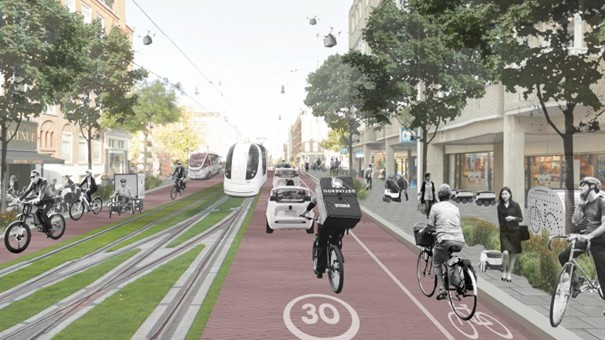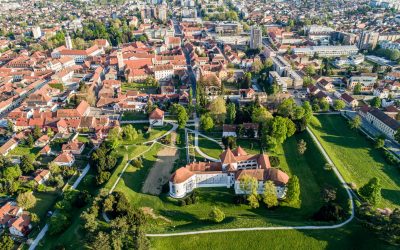On 19-21 June, join the Final Dissemination Event to learn from pilot cities how mobility needs to change to achieve climate neutrality
How must mobility change to achieve long-term climate objectives?
The EU-funded project “2050 Climate-friendly mobility in cities” (2050 CliMobCity) started in the summer of 2019 to help cities to achieve climate mitigation in the field of urban mobility.
The central question in the project is how mobility has to be improved to sufficiently respond to the cities’ carbon reduction aims. The project also reflects on spatial issues, as the city structure is an important factor of the sustainability of mobility. Strategic planning is key to succeed.
Predicting new transport models to adopt more efficient policies
Each partner city (Thessaloniki, Leipzig, Bydgoszcz and Plymouth) has communicated the content of BAU (Business as usual) policies and defined one or more further-reaching measure packages, referred to as CliMobCity measure packages. The cities have then predicted the change of mobility due to the packages, using their transport models. From there PIK – partner also of the EUCityCalc project – has analysed the reduction of carbon emissions. In this way the cities “demonstrate” (explore) the consequences of policy choices, each city learning from its own demonstration and from the demonstrations of the other partner cities. Same as EUCityCalc, the cities reflect on the meaning of the demonstration results for future planning and other activities. The process, results and reflection are documented in a Project Summary Report (still in development) and partly also in the cities’ Action Plans. The central result of the demonstrations is that the carbon emissions aren’t sufficient in any of the partner cities, given their climate aims. There is too little reduction of fossil (road) vehicle-kms. The background changes take place too slowly, as modal shift, reduction of the average travel distance, increase of the average vehicle occupation and/or the replacement of fossil fuel by post-fossil fuel vehicles.
The approaches of the cities show quite some differences. One city envisages the very long term (2050) and in its CliMobCity packages proposes large changes, including the reurbanisation more to the central areas of the city. The other cities stick more to the current strategic planning horizons, focussing on the following 10 years of development.
The Final Dissemination Event will take place on 19, 20 and 21 June 2023 in Leipzig. Register now to join the event – in person or online – and learn more about the results achieved by 2050 CliMobCity.











